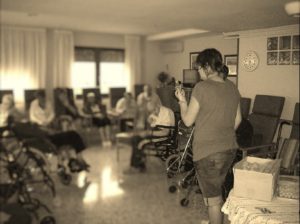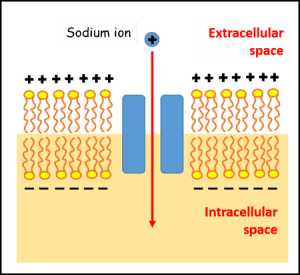Does Occupational Therapy seem familiar to you? It is one of the youngest and most unknown medical sciences. Occupational Therapy (OT) aims at the integral rehabilitation of the patient.
Its study began after the Second World War, when many soldiers returned with mutilated members and psychological traumas. For their recovery, the development of a new approach was necessary; that’s how the OT was born. This science is based on the knowledge of psychology, nursing or physiotherapy to offer an individualized service according to the needs of the patient; its objective is to achieve the maximum independence and possible reinsertion of the individual in all its aspects: work, mental, physical and social. Although it has a wide range of users: children with learning difficulties, people with disabilities, drug addicts…, the OT has focused lately on its support for the elderly. In fact, there are currently many institutions of the elderly that present this service.
Despite its name (occupational), which could suggest “having patients occupied”, nothing is further from the truth. The OT aims to perform a therapy through the patient’s own activities, which is very motivating for the user. Unfortunately, this service is undervalued by both institutions and public administrations. Also, it is a great unknown to Spanish society, although not so for English or American society. To illustrate, in the United Kingdom there are 75 therapists per 100,000 inhabitants, however in Spain there are only 3.8 therapists.

Session of occupational therapy to an elderly group
Since the research, very promising studies are being carried out on the use of OT, especially in the elderly. Thus, we set out to study, on the one hand, the benefit of OT on the cognitive deterioration suffered by the elderly, and, on the other hand, to assess the weekly hours of therapy necessary for that benefit. We worked with 94 users belonging to two care homes for the elderly of Aragon and an average age of 80 years. Our volunteers were classified into three groups based on the weekly hours of therapy they received: 1) they did not receive any Occupational Therapy, 2) they attended an average of two hours a week and 3) they attended an average of 10 hours a week of therapy. In our study, we showed that with only two hours a week of OT it is possible to stop the cognitive deterioration (measured through the MEC or mini cognitive exam) suffered by the elderly for a year but, in addition, the group that attended an average 10 hours per week of OT not only stopped their cognitive deterioration, but was able to maintain their cognitive functions and even some could improve them. Our study is in line with recent results that show that this kind of intervention can be a very effective tool both for the cognitive deterioration and for the physical deterioration suffered by the elderly. In addition, recently it has been published that only one hour of social interaction per week is able to have benefits in patients with dementia.
It is clear that this type of therapy should be considered a fundamental tool for the care of the elderly. The fact of helping them to maintain their cognitive abilities for a longer time, not only improves their mental and personal situation; it also reduces the costs of attention. So, a greater investment in OT could reduce the costs of dependence. Despite all the benefits, both personal and economic that this therapy can bring to the society, there is still much to be done to expand and establish its use in many other pathologies beyond cognitive impairment, as in the case of stroke, Down syndrome, eating disorders, arthritis / osteoarthritis … Therefore, it is essential to recognize the value of Occupational Therapy and invest in their research.
By Dr Eva Latorre, SRUK South West Constituency, Institute of Biomedical and Clinical Science. University of Exeter.






